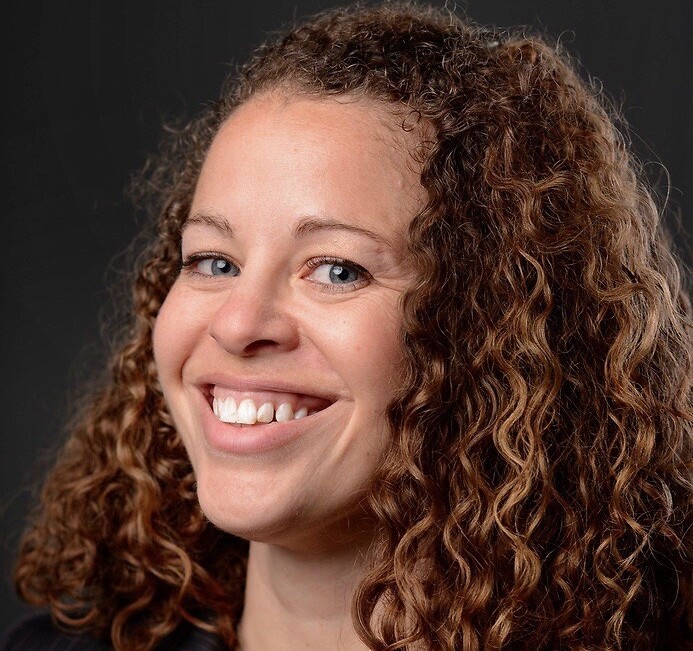Keeping Time: What We’re Learning from Conversational Grantmaking in Practice

It’s summer, and this moment holds more than dates and deadlines. It’s a time to pause and reflect on the kinds of relationships we’re building across the funding landscape. As uncertainty deepens and capacity shrinks for many nonprofits, the push for accountability must come with a stronger pull toward trust.
We’re in a moment of deep fatigue—and deep possibility. Grantee partners are stretching toward bold solutions while weathering economic cuts, political backlash, and emotional exhaustion. Funders are reevaluating assumptions and, in some cases, experimenting with new reporting approaches rooted in conversation, care, and collaboration.
Across these experiments, a few shared questions keep emerging:
- What counts as accountability?
- What kind of reporting builds power instead of extracting labor?
- And how can we support grantee partners through more relational, less transactional, practices?
This blog offers reflections and field-informed guidance on how to begin or deepen a practice of conversational reporting—and where it fits within a broader strategy for equity and justice in philanthropy.
What Is Conversational Reporting?
Conversational reporting is a shift in how funders learn from and with their grantee partners. Rather than written reports structured around funder needs, conversational approaches are designed around mutual exchange: structured but flexible conversations that surface learning, invite context, and affirm relationships.
It is not just a kinder format. When done well, conversational reporting can interrupt bias, surface nuance, and shift who holds interpretive power in evaluation and learning. It supports transparency and responsiveness while offering grantee partners space to share what they’re learning—not just what’s working.
This approach can also reduce administrative burden. One national nonprofit leader shared this feedback during an OAR pilot:
“That one call where I didn’t have to prove anything—just show up and be real—did more to rebuild my trust in philanthropy than any grant renewal.”
To learn more about why relational reporting is important now, check out the blog post, Listening for the Beat of Change: Conversational Grantmaking Where Accountability Demands Listening.
Start Small, Shift Intentionally
Relational reporting doesn’t require an overhaul—just a thoughtful first step. A single change, like replacing a form with a check-in or a written summary with a voice note, can reshape the funder-grantee dynamic.
One early pilot taught us this: clarity is kindness. When we didn’t explain the new format, a grantee partner showed up with a two-hour PowerPoint for what was meant to be a brief conversation. The intention to share was strong, but the lack of guidance caused confusion. These moments remind us that shifting practice means learning together—and being clear, flexible, and transparent along the way.
Here are a few tips when getting started with conversational reviews.
1. Start With One
Test one reflection conversation with one grantee this cycle. Offer format options such as phone, voice memo, or written. Pay attention to what you learn and how the experience feels, for both of you.
2. Signal Relationship Early
Signal your commitment in the grant letter and state during onboarding that the focus is shared learning and not audit.
3. Plan Lightly, Stay Flexible
We suggest sharing your question prompts at least two weeks before the conversation, or, even better, when you schedule the conversation. Meet grantees where they are: schedule a phone, video call, in-person, or WhatsApp check-in. Choose connection over perfection.
Depending on the grant timeline, the discussion might happen mid-grant as a learning touchpoint or near the end as a reflection. There’s no single right moment. What matters is that it fits the rhythm of the work and centers the grantee’s voice.
A few discussion questions to consider incorporating:
- What are you most proud of right now?
- What’s changed since we last connected?
- What are you learning that you think we should hear?
- Is there anything you’re navigating that you wish funders better understood?
Then, listen generously, and let the conversation unfold.
4. Involve Legal and Ops Early
Don’t assume your legal team will block conversational reviews—invite them in. Start with lower-risk grants to demonstrate value. Many funders have learned that a short call can meet both their legal and learning needs.
5. Close the Loop
Tell grantees what you did with what they shared. Did it shift strategy? Inform your board? Change your timing? When grantees know their voices matter, they speak more freely, and the learning deepens.
What We Heard in the Field
In the webinar, Listening Practice: Shifting from Compliance to Conversation, funders shared the hurdles they face: culture, capacity, board fear, and defaulting to legacy systems. But they also shared their first steps:
- Using pre-application calls instead of proposals
- Pairing final reports with optional check-ins
- Embedding conversation language in grant letters
Expect internal resistance—it’s normal. As Blanch reminded webinar attendees, staff roles often need to shift, portfolios may need rebalancing, and new support staff might be necessary. One strategy: start with allies across departments to pilot small changes, then build the internal case from there.
Funders like Grove, Kataly, and Borealis that have already started implementing conversational reviews demonstrate that these practices reduce burden and strengthen alignment between values, strategy, and relationships. Grove invites grantee partners to choose how they report: through conversation, writing, or not at all. Kataly uses reflective calls with open-ended questions to inform strategy and affirm grantee wisdom. Borealis has co-designed participatory tools with impacted communities, embedding shared ownership into the learning process. These shifts are happening in real time—and they’re reshaping how trust and accountability show up in practice.
Using AI to Support, Not Replace, Relationships
While conversational reporting is human-centered by design, AI can play a thoughtful supporting role. When used with care, AI assistants can summarize reflection notes, surface patterns across reports, or prep learning memos—freeing up time for deeper conversations. But AI should never replace a grantee’s voice. As we shared in the webinar, “You can’t pull the blueberries out of the muffin.” Bias is baked in. Responsible AI use requires transparency, consent, and cultural sensitivity. If you use AI in reporting, say so clearly—and use it to deepen learning, not automate relationship.
According to research by the Technology Association of Grantmakers, 70% of grantmaking organizations don’t have an AI policy in place. If you are one of those, check out this guide, How Grantmakers Can Great Policies that Spark Innovation and Minimize Risk.
Not Just Tactics—A Transformational Strategy
Conversational reviews are not about being “nicer.” They’re about being smarter, braver, and more connected. In a time when many are defaulting to control, these practices model what it looks like to lead with trust and act with urgency.
As Brenda Solórzano reminds us, “Boards have a fiduciary responsibility to perpetuity—but also a duty of loyalty to mission. If we want our missions to succeed, we have to fund like we mean it.”
Accountability isn’t a one-way mirror. As Blanch shared during the webinar, “We consider the foundation to be accountable to our grantees.” That flip in perspective—funders accountable for doing what we promise—helps establish shared trust and resets the tone of reporting as a mutual practice in service of communities, not just compliance.
Relational accountability is not a detour from impact—it’s the path to it.
Call to Action: Try, Learn, Share
If you’re ready to shift one rhythm in your grant practice:
- Invite one partner to reflect by phone this cycle.
- Replace one report with one real conversation.
- Ask, “What would make this easier or more meaningful for you?”
Then document what you learn and tell someone else.
To support your journey, we’ve created the Reporting Resource Hub, a curated collection of tools, prompts, templates, and stories from the field.
Inside the Hub, you’ll find:
- Sample conversation guides and reflection questions
- Planning templates for onboarding and check-ins
- Case examples from funders who’ve tried conversational reviews
- Principles and practices for equitable, responsive reporting
- Tools for legal and compliance alignment
Whether you’re just testing a single conversation or seeking to embed these practices across your portfolio, the Hub is designed to meet you where you are. The Reporting Resource Hub now features tools like Borealis Philanthropy’s movement-defined evaluation model, a call template Grove developed to replace formal reports, and co-created participatory feedback loops from Liberty Hill. These are practical, replicable models that funders can draw from today.
The work ahead is relational, strategic, and slow by design. But if we build it together, it’s also more effective—and more human.
Let’s keep listening, together.
Blanch Vance of the Grove Foundation co-wrote this article.
Examples of Foundations Embracing Conversational and Participatory Practices
| Foundation Name | Key Conversational/Participatory Approach | Noteworthy Outcome/Impact |
| Grove Foundation | Optional written/conversational reporting | Authentic dialogue, informs internal practice, especially during spend-down |
| Kataly Foundation | Reflection calls with specific questions in place of reports | Affirming lived knowledge, refines priorities, ensures feedback is used for strategy |
| Borealis Philanthropy | Participatory review tools designed with directly impacted communities | Deeper relationships, informs strategy, challenges internal inertia, emphasizes transparency with AI |
| The James Irvine Foundation | Extensive community listening sessions; follow-up research | Deepened staff understanding, grounded work, informed grant applications, addressed data gaps |
| North Star Fund | Community Funding Committees for grant decisions | Grassroots-led grantmaking, embodies “change, not charity” vision, shifts due diligence to funder |
| Liberty Hill Foundation | Guiding principle: “those closest to issues best understand”; deep engagement of community advisors | Empowering community leaders, advancing social justice through local expertise and policy change |


